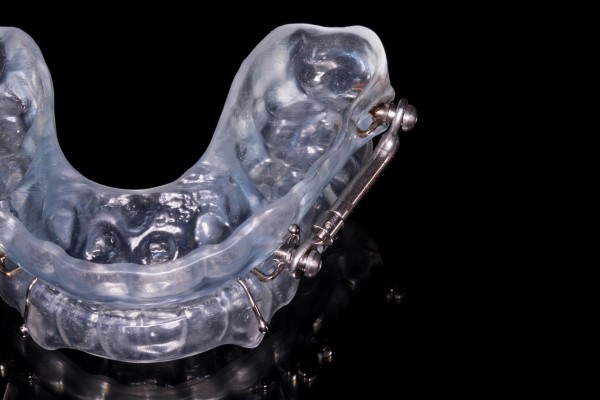Oral Appliances and Sleep Medicine

Oral appliance therapy is one of the effective treatments provided under sleep medicine. A custom-fitted oral sleep device can improve sleep quality, boost mental alertness and restore overall wellbeing. This article explains oral appliances and their use in sleep medicine.
About oral appliance therapy and sleep medicine
An oral appliance is a device worn during sleep and fits into the mouth like a mouthguard or orthodontic retainer. It holds the jaw in a forward position to keep the upper airway open. Studies show that oral appliance therapy is an effective sleep medicine treatment for snoring and obstructive sleep apnea.
If a dentist has decided that the best way to solve a sleep disorder in a patient is oral appliance therapy, they will recommend the patient a custom-made oral device. There are over 100 oral devices with FDA approval and the dental professional will suggest the best option after a proper examination. Many medical insurance plans cover oral appliance therapy.
Benefits of oral appliance therapy
Oral appliances are an effective and non-invasive treatment alternative to Continuous Positive Airway Pressure (CPAP) machines, which are typically prescribed for the treatment of sleep apnea. Many people prefer this option because it is:
- Easy to wear
- Comfortable
- Portable
- Quiet
- Convenient when traveling
- Easy to maintain
How dentists use oral devices for sleep medicine
During the patient's first appointment with the dentist, they will learn about some of the benefits of treatment. They will also get details about the possible side effects and the cost of treatment. Afterward, the dentist will perform a thorough medical evaluation. This will include an examination of the teeth, tongue, jaw, airways and sometimes, an x-ray of the oral cavity.
To make and fit the oral appliance, the dentist will customize the device by using a digital or manual impression of the patient’s teeth. The dental models will be forwarded to a dental laboratory that creates oral devices.
Once the oral appliance is available, the patient will visit the dentist’s office for a fitting appointment. The dentist will make the necessary adjustments to ensure maximum comfort and effectiveness. The patient will also learn how to clean and maintain the device properly. After fitting, the dentist may recommend an overnight sleep study to verify the effectiveness of the device.
Patients need follow-up visits with the dentist to make sure the oral appliance continues to fit correctly. For continuous effectiveness, the dentist needs to adjust the custom fitting. They will also schedule an annual assessment. The routine follow-up appointments are crucial to the long-term success of the treatment.
Do you suffer from a sleep disorder?
Undergoing sleep medicine treatment for snoring and obstructive sleep apnea with oral appliance therapy can restore you to your normal self. You will start to experience dramatic improvements in your symptoms and quality of life when you stay committed to the treatment. You will begin to sleep better and remain vibrant and energetic throughout the day.
Treating sleeping disorders contributes to a healthier body, heart and mind. With the help of your dentist, you can improve your health and sleep quality.
Request an appointment here: https://familychoicedentistry.com or call Family Choice Dental at (505) 634-5657 for an appointment in our Albuquerque office.
Check out what others are saying about our services on Yelp: Read our Yelp reviews.
Related Posts
If your teeth are spaced irregularly, you might not have great self-esteem and may consider trying teeth straightening. Plus, the issue might change your oral hygiene habits. One reason is that food might get stuck in them and be difficult to remove. That can weaken the teeth and gums, leading to complications. Keep reading to…
Dental problems can happen at any time and often require immediate help to relieve pain and avoid potential complications. If you have urgent dental concerns, you might look for an emergency dentist or a same day dentist. Knowing the difference between these dental professionals can help you choose the best option for your needs.An emergency…
A kid-friendly dentist can significantly shape a child's perspective on oral care by making visits pleasant, approachable, and even enjoyable. Early experiences have a lasting effect on a child's attitude toward brushing, flossing, and maintaining routine checkups. When children feel calm and supported during dental appointments, they are more likely to maintain good habits and…
An implant dentist provides a wide range of services to restore oral health, enhance smiles, and improve overall dental function. These dental providers specialize in dental implants, a reliable and long-lasting solution for missing teeth. From placement to aftercare, the services offered by an implant dentist are designed to meet each patient’s dental needs.Dental implants…
